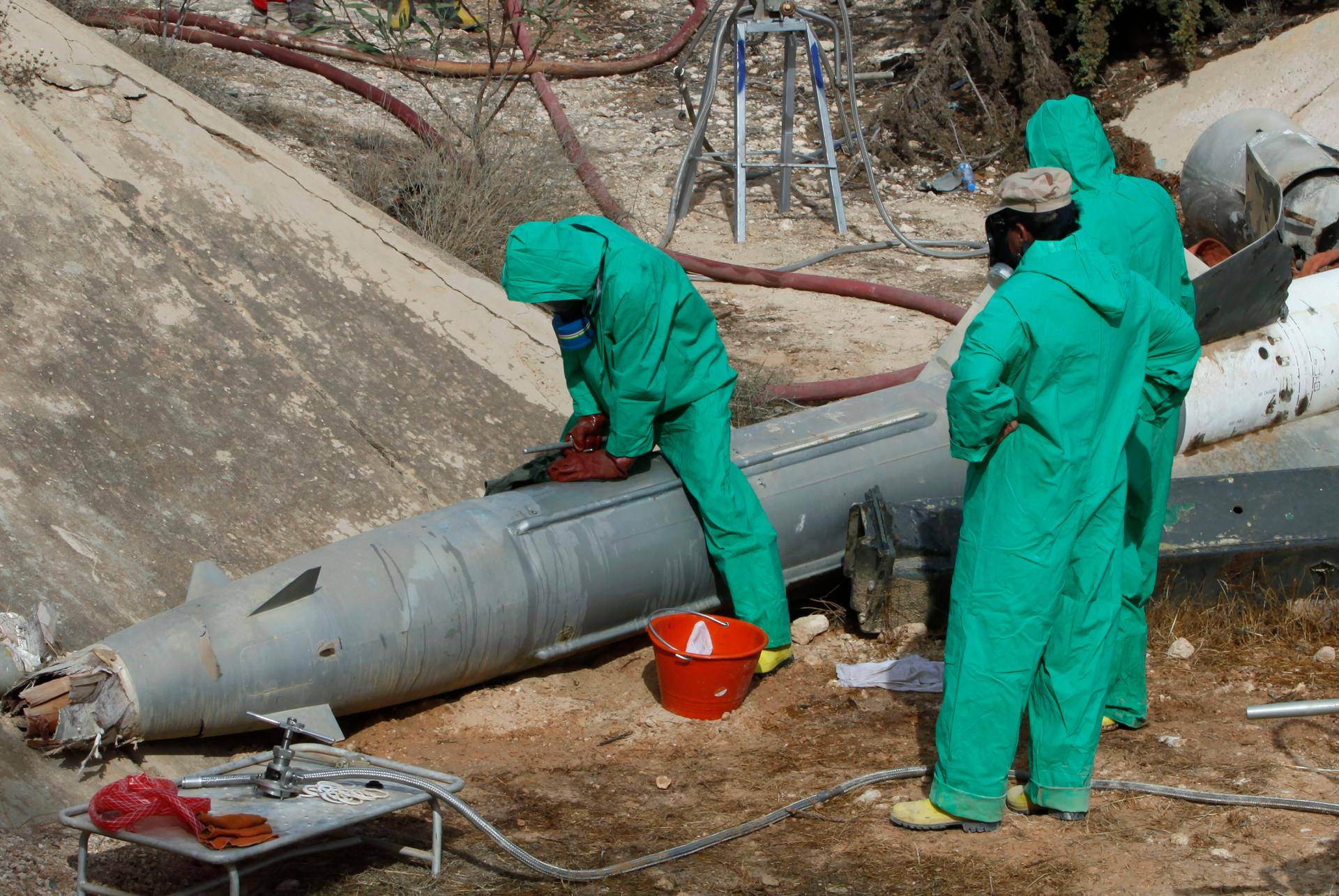The chemical weapons have been destroyed, not in Syria, but in Libya
A team of Libyan experts and military engineers dump away fuel from expired SA-2 missiles, under the supervision of the United Nations, in Tripoli November 11, 2012. Experts were assigned to dump the toxic chemicals found in the air defense missiles left over from the former Gaddafi’s regime.
Lately, Syria's chemical weapons stockpile has received a lot of attention. An ongoing war has stalled the process of removing Syria's stockpile.
But one country that's been successful in getting rid of its chemical weapons is Libya.
The New York Times has reported that the US has been working with Libyan authorities to destroy what is considered to be the last remaining batch of Col. Muammar Gadaffi's arsenal of chemical weapons.
And the cooperation was kept under wraps.
"There's been a lot of concern over the security of the stockpile," says Paul Walker, an expert in arms control with the non-governmental agency, Green Cross International.
Walker has helped with disarmament of the American and Russian chemical weapons stockpile since the 1990s.
Walker says the Libyan government was also very concerned about any relationship with the US, for political reasons.
The destruction took place on Libyan soil, in a desert, 400 miles south of the capital Tripoli.
"It's considered a fairly dangerous place with warring tribes and terrorist groups nearby in northern Africa," says Walker.
The process began a few years ago at a time when Gadaffi was still in power.
Libya joined the Chemical Weapons Convention in 2004 and declared 24 tons of sulfur mustard – material that can be deadly when loaded into bombs.
The plan took a while to gain momentum and it wasn't until 2009-2010 that it got under way.
That's when the Libyan war stopped the process.
"It's been a stop-start program now for really, about three or four years," says Walker.
With the new Libyan government in place, the plan was taken up again.
Today, Walker says, "we can't be sure that all of Libya's chemical weapons material have been destroyed."
However, the Organization for the Prohibition of Chemical Weapons, which has been involved in the case, has inventoried and sealed the material that was declared in 2004, he says.
And those material have now been destroyed.
Meanwhile, according to Walker, there are lessons that we can learn from the case in Libya.
"Both countries are developing countries [and they] needed foreign support, financial and technical, to get their weapons secured and destroyed," Walker says.
He adds that it also shows that a major operation such as this can be done even in very difficult circumstances.
"That's if all parties work together."
